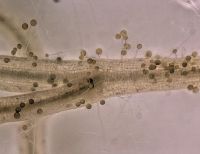There is an unmet need to find drugs that can successfully improve the heart’s ability to pump blood efficiently after it’s been damaged following a heart attack. However, many drugs that make failing heart muscle contract more strongly have been deemed unsafe, leaving a huge gap in heart attack and heart failure treatment. Scientists now believe that they might have identified a new drug target – a protein called MARK4.
In research funded by the British Heart Foundation (BHF), Cambridge scientists found levels of MARK4 were elevated in mouse hearts after a heart attack. When they compared mice with and without MARK4 in the heart, they found hearts without the protein were 57 per cent better at pumping blood. This protective effect was seen 24 hours after a heart attack and lasted for the entire follow-up period of four weeks.
The team identified for the first time that MARK4 fine-tunes a structural network within the heart muscle cell – called the microtubule network – that attaches to the machinery which makes heart muscle cells contract and relax. When MARK4 levels were increased after a heart attack, microtubules were tightly anchored onto the contractile machinery in the heart, causing more resistance and preventing them from functioning normally. When MARK4 levels were reduced, microtubules were loosely anchored, making it easier for the heart to contract and relax.
After a heart attack, in the heart muscle cells of mice without MARK4, the speed of contraction increased by 42 per cent and the speed of relaxation increased by 47 per cent, compared to muscle cells from mice with the MARK4 protein. They were also close to functioning at the same level as healthy heart muscle cells, showing the power of lowering levels of MARK4.
Now, the researchers suggest that drugs to switch off MARK4 could provide a promising new way to improve recovery and help the heart to pump blood more efficiently in people with failing hearts.
Dr Xuan Li, BHF Intermediate Research Fellow at University of Cambridge BHF Centre of Research Excellence, said: “After years of research we’ve revealed an entirely new and promising way that could help the recovery of failing hearts.
“It’s early days, and we now need to test the longer-term effects of switching off MARK4. But if drugs to do that prove successful, the life-changing benefits could be seen in people with other types of heart disease as well as those who’ve had a heart attack and developed heart failure.”
Professor Metin Avkiran, Associate Medical Director at the British Heart Foundation, said: “Heart attacks are a major cause of disability worldwide - people who’ve had a major heart attack are at much greater risk of developing chronic heart failure. There are around 920,000 people living with heart failure in the UK, and we desperately need drugs to drastically improve the heart’s function in these patients.
“These findings are a positive step forward. Further research is needed to refine and test drugs that can target MARK4 before we’ll see them given to people who’ve had a heart attack and develop heart failure.”
This study was also supported by the Isaac Newton Trust, Wellcome, Cancer Research UK and the German Research Foundation.
Reference
Yu, X et al. MARK4 controls ischaemic heart failure through microtubule detyrosination. Nature; 26 May 2021; DOI: 10.1038/s41586-021-03573-5
Adapted from a press release by the British Heart Foundation.
















